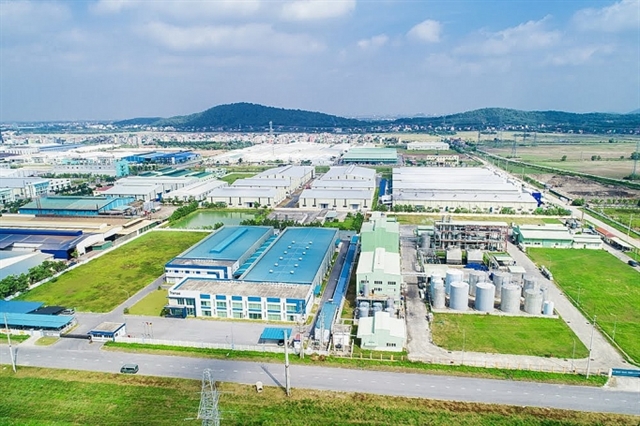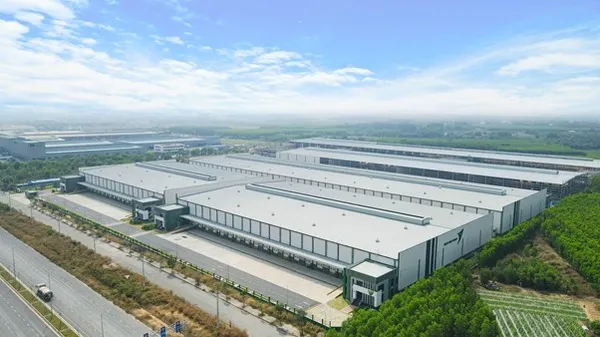 Economy
Economy

The EU-Việt Nam Free Trade Agreement (EVFTA) is expected to bring great opportunities for many economic sectors, including seafood, footwear and textiles.

|
| Lê Triệu Dũng |
The EU-Việt Nam Free Trade Agreement (EVFTA) is expected to bring great opportunities for many economic sectors, including seafood, footwear and textiles. However, Việt Nam's goods will face many anti-dumping lawsuits and trade remedies imposed by importing countries.
Lê Triệu Dũng, general director of the Trade Remedies Authority of Việt Nam under the Ministry of Industry and Trade (MoIT) talks about the issue.
How important are trade remedies for the economy, especially when the EVFTA which was officially signed in June last year is about to take effect?
Trade remedies, including anti-dumping, anti-subsidy and safeguarding measures are allowed by FTAs and the World Trade Organisation (WTO) to prevent unfair competition, such as dumping and subsidies for imported goods. These also prevent a sudden surge of imported goods which has the potential to cause serious damage to domestic manufacturing industries.
They are also an important legal tool to protect local industries and enterprises, especially when tariff barriers are removed in accordance with international commitments.
In the context of the country’s deep integration into several FTAs such as ASEAN, ASEAN +, and most recently the EVFTA, trade remedies have played an increasingly active role in the economy as well as domestic manufacturing industries and businesses, contributing to the goal of improving the efficiency of the international economic integration process.
For FTAs that drop tariffs such as the EVFTA, the competitive pressure on the Vietnamese enterprises and even EU businesses in some fields could be higher. Therefore the demands for the use of trade remedy tools will also be higher.
What aspects of trade defence does the EVFTA cover?
The content of trade remedies stipulated in the EVFTA is based on provisions relating to the use of traditional trade remedy tools set out by the WTO. It also adds progressive principles consistent with the legal system for Vietnamese trade protection. This serves as a legal foundation for the economy and local industries to ensure their effective participation in the trade pact.
The EVFTA has some new points. Firstly, it supplements regulations restricting the use of these tools to avoid abuse and ensure fairness and transparency. This will help to create a more stable and favourable business environment for exporters. The EVFTA prescribes the principle of applying a lower tax rate. It means that anti-dumping or countervailing duties are only sufficient to eliminate any damage (whereas the WTO is not required to use this rule).
Notably, under the EVFTA commitment, the two sides will not apply anti-dumping or anti-subsidy measures if they are not in line with common interests. In addition, for the manufacturing industry, the investigating country should also consider the situation and viewpoints of importers, associations and businesses.
The EVFTA also stipulates bilateral safeguard mechanisms that ensure that tariff reductions under the agreement do not lead to “shocks” to domestic manufacturing industries. The agreement stipulates the mechanism during a transition period of 10 years creates a legal basis to ensure the benefits of all parties that use legitimate safeguard measures in the protection of domestic industries if any damage or threat of damage is made due to tariff reductions.
What measures has Việt Nam taken to promote the role of trade remedies, thereby ensuring a fair trade environment as well as supporting businesses to protect their legitimate rights?
The Government and Ministry of Industry and Trade have established the Trade Remedies Authority of Việt Nam (TRAV) which is in charge of the trade remedy sector. The TRAV has been completing its organisation and structure to ensure tasks are handled effectively. Việt Nam has completed a relatively comprehensive legal basis for activities of investigating and handling trade defence cases. In addition, the MoIT issued Circular 19/TT-BCT dated September 30, 2019 for special safeguard measures to implement the CPTPP, and is expected to continue reviewing this to issue circulars guiding the application of special safeguard measures under future FTAs such as the EVFTA.
Việt Nam has initiated investigations into nine anti-dumping cases, six cases of safeguarding and one case of evading safeguarding measures. The number of cases in recent years has been on the rise. The increase in cases has not only reflected the competition level of imported goods against domestic goods but also shows the ability of enterprises to use trade defence tools to protect their legitimate interests. The awareness of local firms about trade remedies has improved in the past few years.
The ministry, in co-operation with relevant ministries, associations and businesses, has responded to nearly 160 trade remedy cases initiated by 19 countries and territories regarding investigations into Vietnamese exports. This has helped protect the legitimate interests of the country’s manufacturing and export industries, including important sectors such as fisheries, agricultural products, steel and timber.
In recent years, Việt Nam has implemented the role of trade remedies, contributing to improving the efficiency of the process of international economic integration.
What difficulties will Việt Nam's trade remedies face when the EVFTA comes into effect?
When the EVFTA comes into effect, trade will increase as the majority of import tariffs will be reduced to zero per cent. Import and export turnover between Việt Nam and the EU will increase rapidly, leading to the possibility of an increasing number of trade cases between the two sides to protect domestic production.
The implementation of the EVFTA requires businesses to have a thorough grasp of the commitments stated within the agreement, including the provisions on trade remedies, and to be prepared to capitalise on the benefits of the trade deal while simultaneously protecting their own legitimate interests.
In addition, some businesses could try to cheat trade remedies the EU is applying to other countries due to the benefits of the EVFTA. In this context, trade remedies should focus on alerting and preventing illegal acts.
What measures has the ministry taken to enhance support for local exporters in response to foreign trade remedies, and what are your recommendations for Vietnamese businesses?
The increasing trend of protectionism and trade conflicts has had major impacts, especially in terms of the relationship that major economies have with one another. By the end of March, there were nearly 160 trade remedy cases initiated by 19 countries and territories regarding investigations into Vietnamese exports, mainly from the US, Turkey, India and the EU. The MoIT has been supporting firms. We have enhanced research, forecasts and warnings about trade remedies applied on exported goods. The ministry has also submitted a plan to build an effective early warning system on trade remedies. The MoIT has also promoted the dissemination, guidance and advice on how businesses deal with foreign-initiated lawsuits. In addition, we have actively co-ordinated with foreign investigating agencies to protect the legitimate interests of Vietnamese businesses and minimise any negative impacts.
Local exporters need to respond to foreign trade remedies by studying laws of importing countries. Firms should diversify their export markets as well as products while increasing competitiveness through quality and brand awareness. VNS


.jpg)

